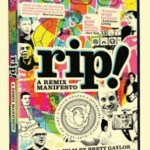OPEN DESIGN NOW


The global repair network is still changing. It used to be very local: you used to bring your broken radio around the block. Now you just throw it away; at best, it is disassembled and reassembled into something else in … Continue reading

Remixing is something that comes from deep within us. A child learns by remixing his or her parents’ behavior. Nothing novel is so new it does not relate to anything remotely similar. Originality can be regarded a strange obstacle to … Continue reading

Waste is one of the first modern products. Did it exist a few millennia ago? Raw materials do not get depleted; they just change their composition. One has to mine them elsewhere, often in a more accessible site, such as … Continue reading

Printing represents a revolutionary way of reproducing symbols, but it takes on added impact when it comes to reproducing objects. 2D and 3D printing are no longer unusual; even scents and microscopic organic tissue can be printed now. The required … Continue reading

Open source describes practices that promote access to the end product’s source materials. Some consider open source a philosophy; others consider it a pragmatic methodology. Fact is, open is spreading. Open source originated from software coding, but many other realms … Continue reading

In the network society, information will travel at light speed. In the network society, no one will be offline anymore. In the network society, the boundaries between public and private will blur so much that it will become unclear whether … Continue reading

Open design, hacking, sharing, co-creation is becoming truly fashionable and therefore valuable to corporations and advertising agencies. A characteristic example is the mass customization of sportswear. Frontrunner NIKE launched its NIKEiD service campaign back in 1999. It was a blank … Continue reading

Openness is still very much a choice, not a default. If it were a default, there would be no need for directions, ideological or not. Ideological efforts need rules, codes of conduct, manuals, bills, declarations, manifestos, often very precise and … Continue reading

Knowledge production is no longer the exclusive domain of science. Moving large chunks of information around at the push of a button has become democratized, at least in the strongly networked part of the globe. The information we access feels … Continue reading

The Hello World programme has traditionally been used to test new computer languages, starting with C. The whistles shown here are the Hello World of DIY 3D printing, first designed by Eberhard Rensch. The whistles have taken over Hello World. … Continue reading